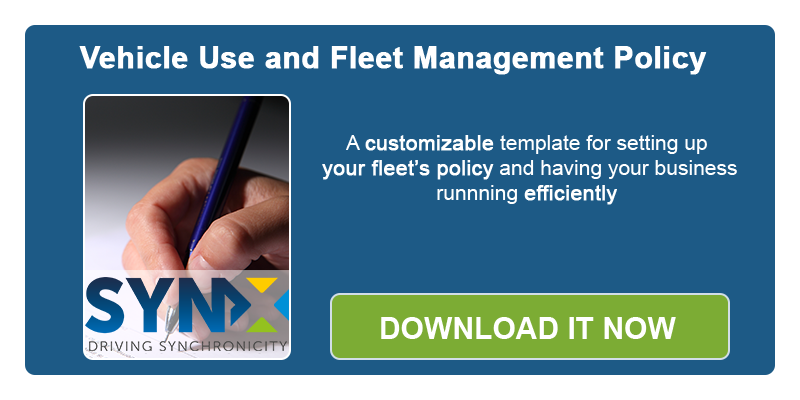Having a fleet policy in place doesn’t just mean staying on the safe side in the event of an inspection—it's rather more than that, it’s about preventing issues before they become a major concern for fleet managers, and having the capacity to deal with any events that can, hypothetically, crop up in a fleet or a company whose business activity regularly involves driving.
If your fleet does not have a policy in place, it could impact on your ability to anticipate incidents or your capacity to make important decisions on the fly; this could seriously impact your business results and/or escalate costs unnecessarily. If you are thinking about drafting a policy for your fleet, this post could be of use to you, and if you already have one in place, feel free to share your comments and suggestions on some of the points listed below.
These are the key points that a fleet policy should include:
#1 - Drivers’ hiring process and continuous training
Drivers’ requirements and hiring procedures should be an important part of a fleet policy. Companies should keep records of drivers’ licences, certifications, health checks, training, and records should be updated accordingly, subsequent to receiving any in-company training.
#2 - Incidents reporting, recording and responsibilities
Driving for work is a risky activity for company drivers and other road users. Incidents have to be minimised as much as possible and a good preventative maintenance system can actually decrease the number of potential incidents, but, of course, there will always be unforeseen circumstances. This is why companies should have a policy on how to act in the immediacy of an incident, how to report them and how to record them internally; this will set out responsibilities for company and staff, help in dealing with fleet insurance, highlight vehicles which are more prone to incidents and/or in need of maintenance beyond the recommendations of the manufacturer...
#3 - Injury reporting, recording and responsibilities
This is, unfortunately, a possibility, but, hopefully, unlikely, especially if you have clear procedures that run efficiently in combination with a regular maintenance program. Companies, whose business involves driving-related work, have a precise duty of care: UK based companies have to observe legal requirements as stated in the Corporate Manslaughter and Homicide Act 2007 and in the Health and Safety Offences Act 2008. With regards to Ireland, the Corporate Manslaughter Bill of 2013 defines companies’ responsibility; hence the importance of implementing this point in a policy draft.
#4 - Maintenance recording and responsibilities
Regular maintenance is the key for keeping vehicles in roadworthy conditions. A fleet policy should refer to a precise schedule that includes daily walk-around checks as well as weekly checks or other type of maintenance, and also clearly state who is responsible for carrying them out. Such checks have to be recorded and, according to the current Irish CVRT (Commercial Vehicle Roadworthiness Test) programme, they are subject to inspections and there is also an obligation to complete an annual declaration of roadworthiness. The same thing (or something similar) may apply for other countries.
#5 - Use of company vehicles/personal vehicles for company purposes
Companies that require driving for work might have a fleet or some staff using personal vehicles for company purpose. A fleet policy must cover standardised norms on how to use company vehicles (probably discouraging personal use) or personal vehicles (stating who is going to take care of expenses such as maintenance, fuel, etc).



